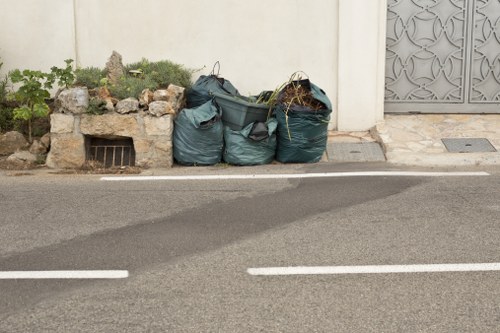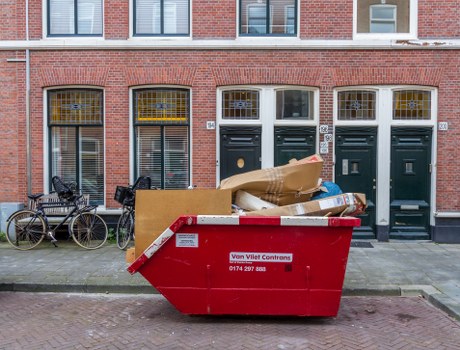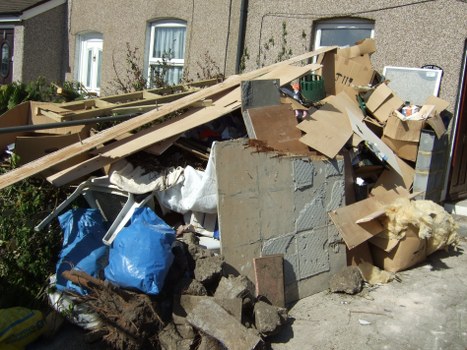Recycling and Rubbish Woodside: A Comprehensive Guide

Recycling and managing rubbish in Woodside is essential for maintaining a clean and sustainable environment. As our community grows, so does the amount of waste we produce. Understanding the recycling processes and rubbish management strategies in Woodside helps residents contribute effectively to environmental conservation.
Woodside has implemented various recycling programs to ensure that waste is managed responsibly. These programs not only reduce the amount of rubbish sent to landfills but also promote the reuse of materials, thereby conserving natural resources.
Residents are encouraged to participate actively in these programs by segregating their waste, using designated recycling bins, and adhering to collection schedules. By doing so, everyone plays a part in making Woodside a greener and healthier place to live.
The Importance of Recycling in Woodside

Recycling plays a pivotal role in Woodside’s environmental strategy. It helps reduce the strain on natural resources, lowers greenhouse gas emissions, and minimizes pollution. By recycling, Woodside ensures that materials like paper, plastic, glass, and metal are reused, decreasing the need for raw material extraction.
Moreover, effective recycling reduces the volume of waste that ends up in landfills, which in turn lessens environmental hazards such as soil and water contamination. This proactive approach contributes to a sustainable future for the community and protects the local ecosystem.
Economic benefits also arise from recycling. It creates jobs in the recycling and manufacturing sectors and fosters a circular economy where materials are continuously reused and repurposed, driving growth and innovation within Woodside.
Types of Rubbish Recycled in Woodside

Woodside recycles a variety of materials to ensure comprehensive waste management. The primary types of rubbish recycled include:
- Paper and Cardboard: Newspapers, magazines, cardboard boxes, and office paper are collected and processed for reuse.
- Plastics: Bottles, containers, and packaging materials are recycled to produce new plastic products.
- Glass: Bottles and jars are recycled to manufacture new glass products, reducing the need for raw materials.
- Metals: Aluminum cans, steel products, and other metals are recycled to create new metal goods.
- Electronic Waste: Old electronics are processed to recover valuable metals and components.
By recycling these materials, Woodside not only reduces landfill waste but also conserves energy and resources, contributing to a more sustainable and eco-friendly community.
Recycling Facilities and Services in Woodside

Woodside boasts several recycling facilities and services designed to make recycling accessible and efficient for all residents. These include:
- Community Recycling Centers: Easily accessible centers where residents can drop off recyclable materials.
- Curbside Pickup: Regular collection services that pick up recyclables directly from households.
- Drop-off Events: Specialized events for recycling items like electronics, batteries, and hazardous waste.
- Recycling Education Programs: Initiatives aimed at educating the community about the importance and methods of recycling.
These facilities and services ensure that recycling is convenient and effective, encouraging higher participation rates and better waste management practices across Woodside.
Community Involvement and Programs

Community involvement is crucial for the success of recycling programs in Woodside. Various initiatives are in place to engage residents and promote responsible waste management:
- Recycling Workshops: Educational sessions that teach proper recycling techniques and the benefits of recycling.
- Volunteer Programs: Opportunities for residents to participate in community clean-up and recycling drives.
- Incentive Programs: Rewards and recognition for households that consistently practice effective recycling.
- School Programs: Educational programs in schools to instill recycling habits from a young age.
These community-driven programs foster a sense of responsibility and collective effort, making recycling a shared priority among Woodside’s residents.
Environmental Impact in Woodside

The environmental impact of effective recycling and rubbish management in Woodside is profound. Key benefits include:
- Reduced Landfill Use: Less waste in landfills minimizes soil and water pollution.
- Energy Conservation: Recycling materials consumes less energy compared to producing new products from raw materials.
- Lower Greenhouse Gas Emissions: Reduced waste decomposition in landfills decreases the emission of harmful gases.
- Conservation of Resources: Recycling preserves natural resources for future generations.
- Enhanced Biodiversity: Cleaner environments support diverse ecosystems and wildlife.
These environmental benefits highlight the importance of continuous and improved recycling efforts in Woodside, ensuring a healthier planet for all.
Challenges and Solutions

Despite the successes, Woodside faces several challenges in recycling and rubbish management:
- Contamination: Improper sorting of recyclables can contaminate entire batches, making them unusable.
- Limited Awareness: Not all residents are fully aware of recycling guidelines and the importance of proper waste segregation.
- Infrastructure Limitations: Inadequate facilities and resources can hinder efficient recycling processes.
- Funding Constraints: Limited financial resources can restrict the expansion and improvement of recycling programs.
To address these challenges, Woodside is implementing solutions such as enhanced education campaigns, investing in better recycling technologies, expanding facility capacities, and seeking additional funding sources to support ongoing and new recycling initiatives.
Local Relevance: Recycling Efforts in Nearby Areas

Woodside is surrounded by several nearby areas, each contributing uniquely to recycling and rubbish management:
- Eastwood: Known for its extensive recycling centers and community-driven clean-up events.
- Riverside: Features innovative waste-to-energy programs that convert rubbish into usable energy.
- Maple Grove: Excels in electronic waste recycling, providing specialized facilities for e-waste processing.
- Sunnyvale: Implements successful curbside recycling programs with high participation rates.
- Greenfield: Focuses on composting organic waste, turning kitchen scraps into valuable compost for local gardens.
- Lakeview: Hosts annual recycling fairs that educate and engage the community.
- Hilltop: Offers advanced recycling technologies and automated sorting systems.
- Brookside: Promotes zero-waste initiatives, encouraging residents to minimize their waste output.
- Pinecrest: Integrates recycling programs with local schools to educate the younger generation.
- Oakwood: Maintains robust recycling policies and strict enforcement to ensure high compliance.
These nearby areas serve as models for effective recycling practices, providing valuable lessons and inspiration for Woodside to enhance its own waste management strategies.
How You Can Help

Every resident of Woodside can play a role in improving recycling and rubbish management. Here’s how you can contribute:
- Sort Your Waste: Separate recyclables from non-recyclables to ensure proper processing.
- Reduce Single-Use Items: Opt for reusable bags, bottles, and containers to minimize waste.
- Participate in Programs: Engage in local recycling programs and community clean-up events.
- Educate Yourself and Others: Stay informed about recycling practices and share knowledge with friends and family.
- Support Sustainable Products: Choose products with minimal packaging and those made from recycled materials.
By taking these simple steps, you can significantly impact Woodside’s recycling efforts and contribute to a more sustainable and eco-friendly community.
The Future of Recycling in Woodside

Looking ahead, Woodside aims to enhance its recycling infrastructure and expand its programs to meet growing community needs. Planned initiatives include:
- Advanced Sorting Facilities: Investing in state-of-the-art technology to improve the efficiency of recyclable material sorting.
- Expanded Collection Services: Increasing the frequency and coverage of recycling pickup services.
- Public Awareness Campaigns: Launching comprehensive education campaigns to boost recycling participation.
- Partnerships: Collaborating with local businesses and organizations to support recycling initiatives.
- Incentive Programs: Introducing rewards for households and businesses that excel in recycling efforts.
These future plans demonstrate Woodside’s commitment to advancing recycling practices, ensuring a sustainable and resilient community for generations to come.
Frequently Asked Questions
1. What materials are accepted in Woodside’s recycling program?
Woodside’s recycling program accepts paper, cardboard, various plastics, glass, metals, and certain electronic wastes. It’s important to check the specific guidelines provided by the local recycling center to ensure proper sorting.
2. How can I reduce contamination in my recycling bin?
To reduce contamination, make sure to clean and dry recyclables before placing them in the bin, avoid mixing non-recyclable items with recyclables, and follow the local guidelines for sorting materials correctly.
3. Are there any fees for using recycling services in Woodside?
Typically, recycling services in Woodside are provided free of charge to residents. However, certain specialized recycling programs or bulk waste collections may have associated fees.
4. How does Woodside handle electronic waste?
Electronic waste is managed through dedicated recycling programs that safely process and recover valuable materials. Residents can drop off old electronics at designated centers or participate in special collection events.
5. What can I do if my recyclable items are not being collected?
If your recyclable items are not being collected, contact the local recycling center or waste management authority. They can provide guidance on proper disposal methods or address any issues with the collection service.